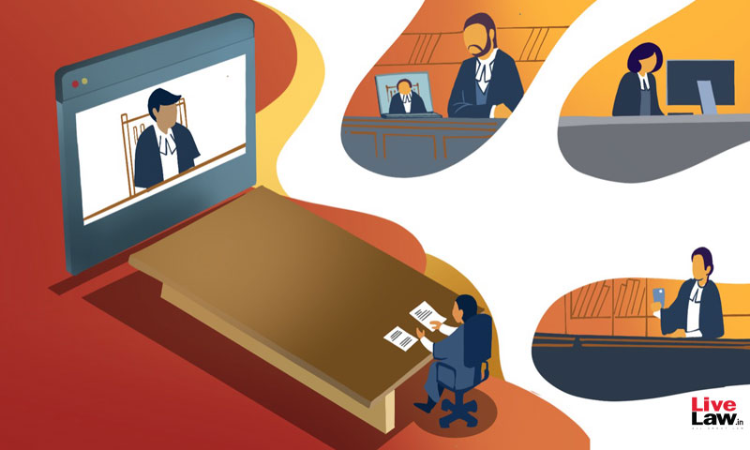Digitalisation Of Indian Courts, Mitigating The Hurdles Amid Outbreak Of Covid 19 With Post Lockdown Approach
Kartik Dabas
1 May 2020 1:07 PM IST

The outbreak of Covid 19 from the Chinese City of Wuhan to more than 200 countries till date, hardly needs any discussion. Noval Coronavirus which appears to be deadlier than any other seasonal influenza, seems to be over for China, but the rest of the World is still grappling with the virus outbreak and so is India. The outbreak and its spread have shuttered many countries, paralyzed their economies and has affected everyday lives. The Judicial System of these Countries is being altered to maintain public safety, similarly India is emphasising on digitalisation of Courts to carry out its functioning, but without acknowledging the low technological literacy. The Supreme Court of India exercising its plenary power under Article 142 of the Constitution of India has laid down the guidelines for the Court's functioning across the Country, but the technological and constitutional hurdles on the digital highway remains unanswered and need to be mitigated, especially considering the post lockdown resumption of court work, as this Virus will be with us for long and digital Court's may be the new normal.
The digitalisation of the Indian Courts during the pandemic, reminds me of the digitalisation project for Indian Courts which was first floated in 2005. The project was headed by Dr Bharuka (Former Hon'ble High Court Judge, State of Karnataka). In its first stage digitalisation project created computer centres and server rooms in all 15,000 courts operating from 2500 court complexes in India. The Second stage focused upon ICT coverage and the third on the information gateways among courts, agencies and departments. We are in the second stage of the transformation, but its due to the outbreak which has expedited the debate and talks of complete digitalisation of the judicial system.
The primary challenge for the complete digitalisation of Indian Courts is to further the concept of 'principle of open justice'. The common law concept encourages for court proceedings to be open and transparent to public, and is a cardinal feature of our judicial process. Amid the pandemic, Court functioning through video conferences has diluted this very principle and Court's decisions are not reaching the masses, for whom the law is actually for. However, if seldom any, they are in form of snippets, articles through press and telecom media. This does not further the concept of open justice. The solution herein lies in a comparative analysis of judicial systems of different countries like US, UK and EU who have opted for Web Broadcasting and live streaming of the cases of national importance on dedicated channels. Availability of audio-visual recording on the Court's Website will also strengthens the concept of open justice and these must be emphasised upon, especially when the lockdown is lifted as digital courts are bound to be the new normal. Even the Supreme Court Bar Association is of the similar view and suggested for the daily transcription of Court proceedings while referring to the cases of Naresh Sridhar Mirajkar vs State of Maharastra and Swapnil Tripathi vs Union of India.
The idea of digital Courts sounds alluring amid the outbreak of Covid -19, but there are other technological challenges as well. Here the technology seems to trip itself over because the hurdles so created by itself, such as like the mammoth of the data which will be collected, collated and stored needs to be protected through proper encryption techniques, particularly when deposition in vulnerable and confidential cases. Though creating a virtual court room is economical and easy but the challenges like, adequate encryption and security when dealing with a confidential case, absence of e - signatures, e - attestations, e - vakalatnamas are the technological void and are major challenges for complete digitalisation of courts. Lack of technological literacy makes the judges, lawyers and clients equally vulnerable to cyber-attacks, recently the advisory issued by the Ministry of Home Affairs has banned the Zoom video conferencing application for government purposes. At last the professional life of budding lawyers needs special attention, here State Bar Councils in coordination with respective Bar Associations can provide for dedicated digital video conferences spaces / rooms in the Court complexes and consequently following the Covid-19 guidelines post the lockdown, so that the requiring lawyers can use the same. It is unquestionable that ICT can play a vital role in facilitating the Court's function during the pandemic but highlighted shortcomings have to be addressed and adequately mitigated.
Views Are Personal Only
(Author is practicing Lawyer at Supreme Court)


